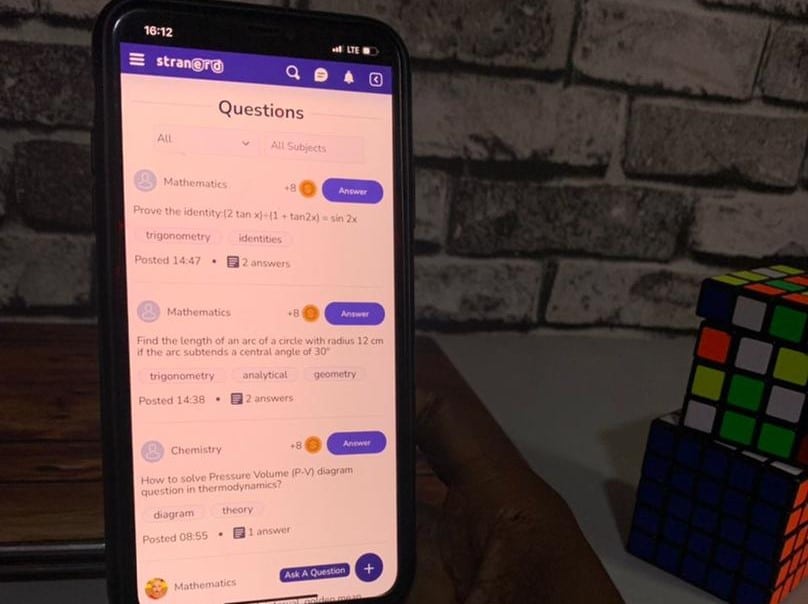At all levels, education in Nigeria is in dire need of intervention. On the supply side, there are more students or prospective students than there are schools. According to the United Nations Children’s Fund (UNICEF), about 10.5 million children in Nigeria between the ages of 5-14 are out of school, and one in every five out-of-school children in the world is in Nigeria.
According to a study of public and private schools in Lagos State by Elaine Unterhalter, a professor of education and international development at University College London, there are 1,200 primary school-aged children for every public school place available. With governments unable to provide adequate options for education in the country, individuals are picking up the slack.
According to the National Universities Commission (NUC), there are more private universities (99) than state and federal universities (98) combined. However, with about 40% of the population living in poverty, the fees charged by these private schools are out of reach for many people.
Yet, not everyone who can afford to pay for a university education gets the opportunity. Between 2010 and 2015, only 26% of the ten million applicants to Nigerian universities gained admission.
This situation has made room for tutorial centres that prepare students for university entrance examinations like the Joint Admissions and Matriculation Board (JAMB).
Sowing the seeds
In 2015, Jeremiah Godwin took the Joint Admissions and Matriculation Board (JAMB) examination but did not make the required score to get admitted into the university. Having failed to get into school, he spent the next year at home. He discovered online marketing and, together with a friend, started reading about the subject.
Their first thought was to create a blog with hopes of making money from it. That never happened, but they were not discouraged. They kept on learning, and in 2017, Godwin’s family relocated to the US, but he stayed in touch with his friend.
Their next venture was Boss Visuals, a digital agency that created logos for businesses while helping them market their products using social media. This time, they had some success making about $1,000 monthly.
Starting Stranerd
In 2018, while hanging out with a friend at a coffee shop in the United States, Godwin talked with a girl. During the conversation, he discovered that she had some difficulties with calculus, a subject that he had aced as a student in Nigeria. He gave her some pointers on how to solve some problems.
A few days later, he got a call from her saying that she was willing to pay whatever he wanted if he could tutor her to pass the course. He agreed, and she sent him a bunch of past questions.
Realising he needed some help, he enlisted his friend, Timmy Salami, to solve the questions. Together, they were able to tutor the girl and made some money in the process.
At about the same time, Salami was trying to decide what to do, so he spoke to Godwin about tutoring students online. With guidance from Godwin, he created an Instagram page and started posting content. They named the page “Stranerd,” a combination of the Italian word for extra and nerd.
Soon, they were getting requests from students worldwide who needed help with their assignments, charging between $20 and $50 to solve problems. With time, requests started extending beyond math and calculus to subjects they had no expertise on, and so they hired more tutors, in the process becoming a bridge between the students and the tutors.
The most significant change would come in 2020, when they started receiving more requests from students in Nigeria. These students could not afford what they charged their clients studying in European and American schools. But they wanted to help.
First, they researched available edtech solutions in Nigeria, but none of the options they saw was good enough. They were either unknown to the students who needed them or did not serve the demographic that reached out to the Stranerd team.
Discovering a need, they launched a web platform that caters to Nigerians at an affordable price. Currently, they serve students on both the website and social media. On social media, they charge about $5 for each question they solve, sell study materials, and connect students to tutors while taking a cut of the earnings.

On the website, which currently serves mainly Nigerian students, the startup employs a coin system to charge students. Coins sell from $0.99 (₦408) for 300 bronze coins to $4.99 (₦2,056) for 50 gold coins.
With these coins, students can ask questions, access study tools and materials, or book sessions with tutors. In addition to using the coins to pay for services on the site, students can also redeem coins by answering questions.
Godwin explains the reason for employing the coin system as opposed to a subscription model.
“The idea is that the average Nigerian is not okay with paying a monthly subscription for a product or service, so we use the coin to make them pay for services as they use them.”
What does the future hold?
The startup has big plans to extend its offerings beyond tutorials. The goal, Godwin says, is to become a one-stop-shop for the Nigerian student’s educational needs and possibly African students also. They also want to include connecting students to internships as well as providing study-abroad services to students. But first, the startup plans to build trust among the students before leveraging it to add more services.
“By next year [2022], we’re hoping to get a million users. Right now, on the platform, we have questions and tutors. We’re hoping to bring in study groups and sessions.
“The idea is that when the tutors come on the site, they create study materials that students can access whenever they like. The big vision is to become a company that the Nigerian student can trust with everything educational.”
Stranerd also plans to add classes. Already the startup has partnered with two tutorial centres in Lagos with plans to add more in the future. For these tutorial centres whose reach is limited by physical classes, the value proposition is their ability to reach many more students than would typically walk in.
“With classes, tutors can host their classes, maybe JAMB or JUPEB classes, and they can have students subscribe to the class, and they can teach them. We have already partnered with two in the Akoka area. And in the coming months, as we push more features to the site, we would partner with more people around Nigeria.”
Since launching in 2019, the startup has served almost 40,000 students in 11 countries, including Nigeria, United States, India, Pakistan, Cyprus, Germany, Indonesia, Brazil, France, Australia, and the United Kingdom.
The website, which has run solely on revenue, already has 500 students after its August 2021 launch.
Godwin reveals that the startup made a little over $2,000 in revenue in 2019 after launching towards the end of the year.
In 2020, spurred by the coronavirus pandemic, the startup reportedly generated $30,000 in revenue and has already done over $40,000 so far in 2021. It also has plans to raise money from investors having already applied to Y Combinator. Users can also expect an app release soon.
Godwin is studying Computer Information Systems at Near East University, Cyprus, while Salami is studying Electrical Engineering at the University of Lagos. As students, running a business has been a bit challenging, and Godwin reveals that the biggest test, so far, has been adequately understanding the Nigerian market. The second biggest challenge has been funding.
“Money is an issue. We’re not so much, and with money, you can hire more people to speed up the work. But if there’s any challenge, it would be understanding the Nigerian market.
“Understanding the Nigerian market is not easy, and Nigerians relate differently with edtech startups. I think that’s where most edtech people have it wrong, trying to replicate what people in America are using.”









